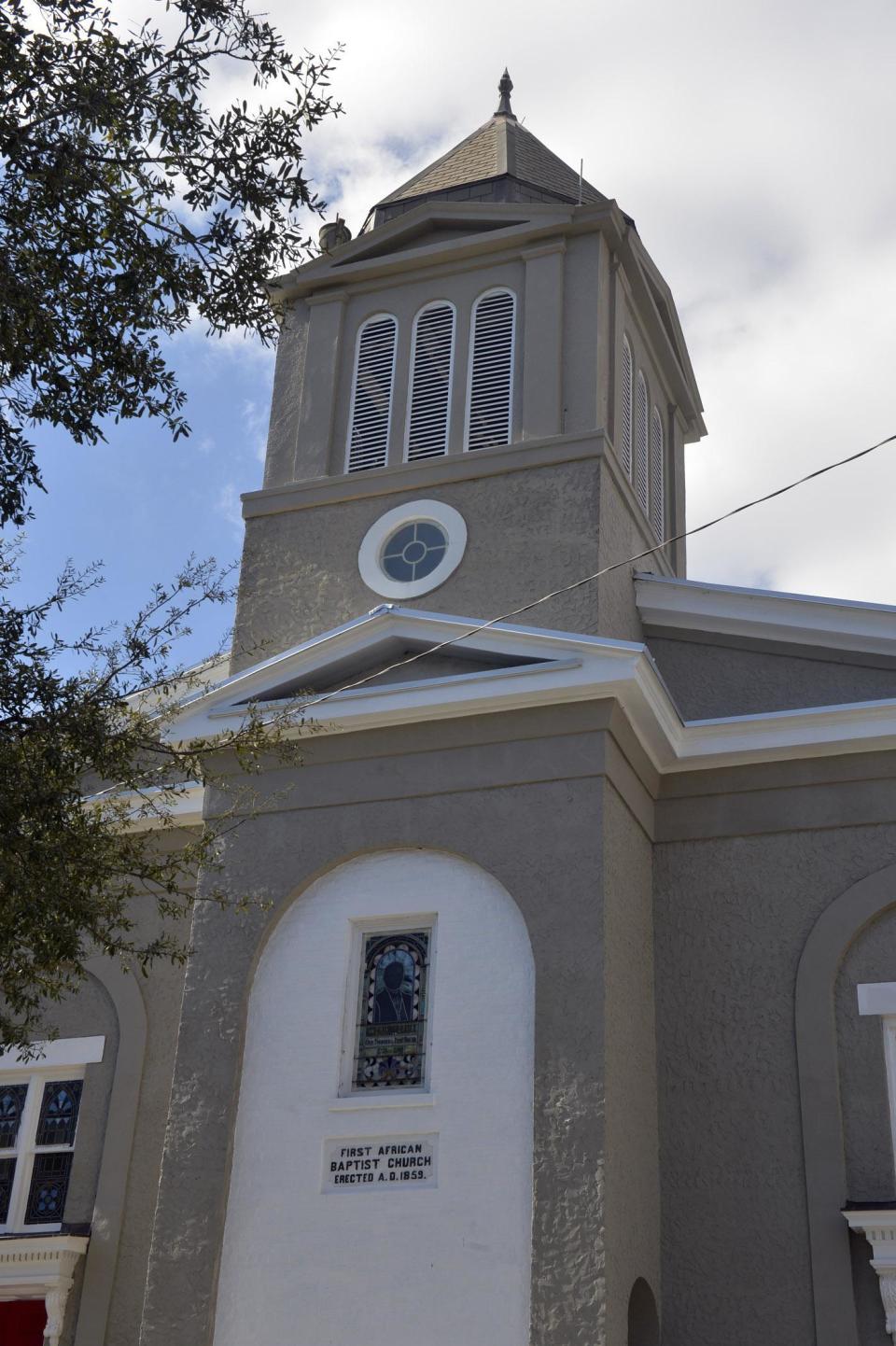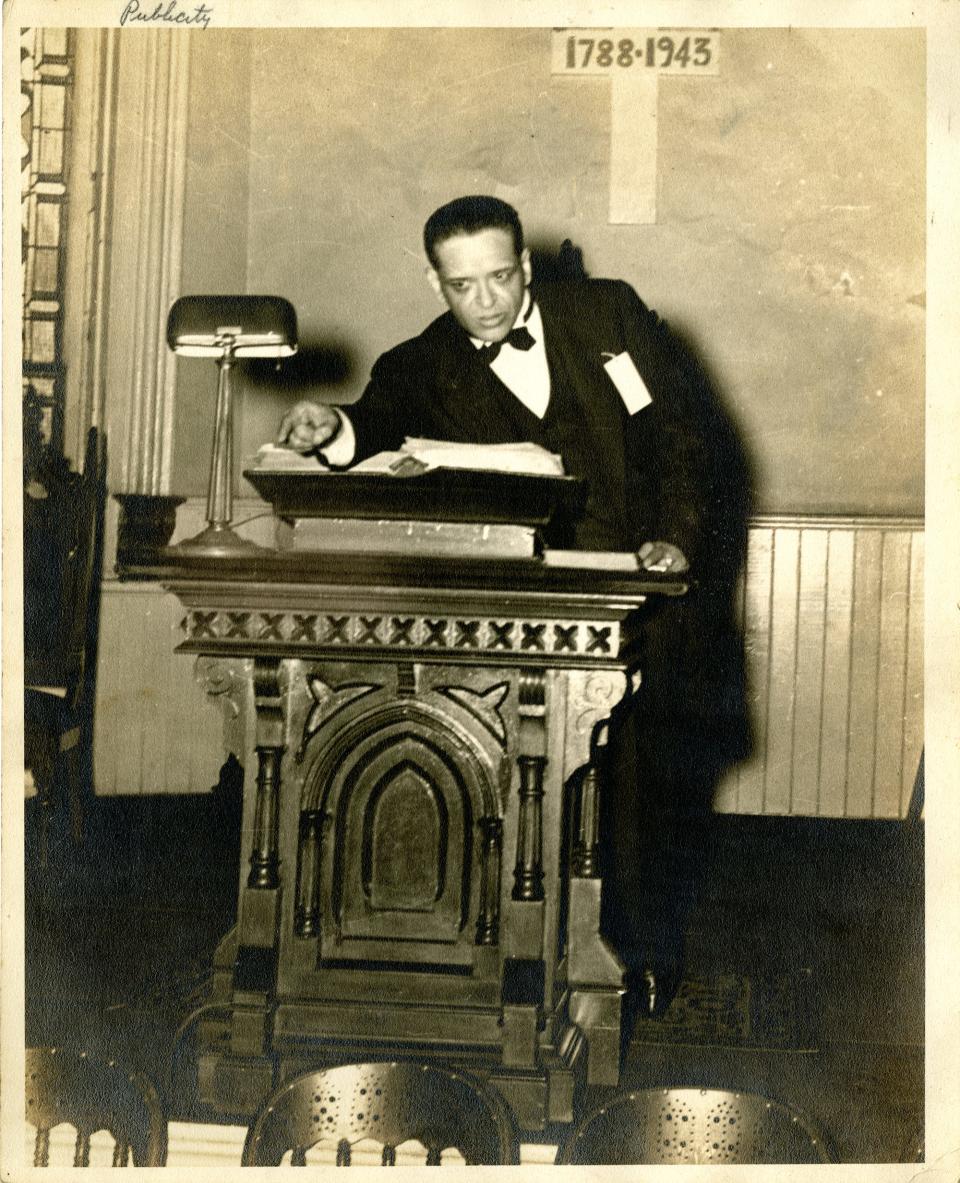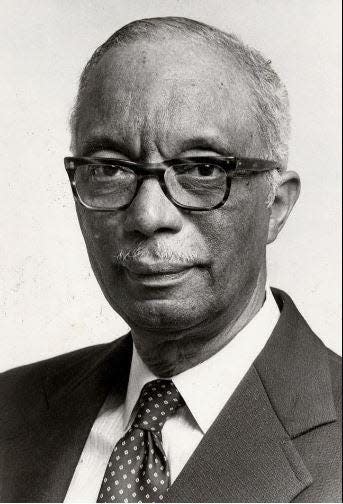The Martin Luther King, Jr. monument is up. Here are 10 statue-worthy Black Savannahians.
- Oops!Something went wrong.Please try again later.
- Oops!Something went wrong.Please try again later.
With Saturday's dedication of the Martin Luther King, Jr. monument at Plant Riverside, Savannah now has three statues that honor Black heroes.
One for King.
One for the Haitian soldiers who fought alongside the Georgia colonists in the Revolutionary War.
One featuring a nameless enslaved family being freed on Jubilee Freedom Day.
None celebrating Savannah's many Black icons.
As we mark Martin Luther King, Jr. Day, here's a list of statue-worthy Black Savannahians:
Andrew Bryan

Bryan founded the historic First African Baptist Church while still enslaved. He bought his and his family's freedom in 1794 and built the church on Franklin Square.
Ralph Mark Gilbert

Gilbert was an early civil rights pioneer in Savannah and is credited with reorganizing the Savannah NAACP in the 1940s, setting the stage for the group to become a political force in the 1960s.
Mother Mathilda Beasley
Beasley operated a secret school for enslaved and freed Black children at a time when Georgia law prohibited the education of people of color. She later became the state's first Black Roman Catholic nun and founded both an orphanage for Black children and Georgia's first community of Black nuns.
W.W. Law

Law spearheaded Savannah's civil rights protests in the late 1950s and early 1960s, including sit-ins at Broughton Street businesses and wade-ins at the Tybee beach. He advocated for non-violent protest and is widely credited with Savannah desegregating peacefully and earlier than other southern cities.
Richard R. Wright
Wright founded what is today Savannah State University in 1891 and served as the school's president for 30 years. Born into slavery in 1855, he was among the first attendees of Atlanta's Storrs School, a missionary school established to educate the children of freed people.
Susie King Taylor

Taylor was born into slavery in Savannah in 1848 but gained her freedom at age 14 when her uncle helped her to a Union gunboat off the Tybee coast. Taylor went into service with the First South Carolina Volunteers, the first Black regiment in the U.S. Army, and gained renown for teaching many members of the regiment of former slaves to read.
Bobby Hill
Hill, a lawyer by trade, played an instrumental role in the desegregation of Savannah's schools. In 1968, he became the first Black person from Chatham County elected to the Georgia House since Reconstruction. He served 14 years as a state lawmaker and later mounted two unsuccessful runs for Georgia lieutenant governor.
Eugene Gadsden

Gadsden was role model for young Black Savannahians during and after the civil rights movement. He served as the Savannah NAACP's legal counsel during the protests and later became Chatham County's first Black Superior Court judge. He served on the bench from 1979 to 1992.
Cornelius and Alice McKane
The McKanes started the Charity Hospital and Training School for Nurses in 1896. Both trained physicians, they founded the facility to provide adequate care for the Black Savannahians. Alice McKane was the first Black female to practice medicine in Georgia.
Curtis V. Cooper
Cooper established a health clinic for the indigent on Savannah's westside in 1972 and went on to become a health care champion for the community. He served on the board of Memorial Medical Center and the Chatham County Hospital Authority as well as on state-level health commissions.
This article originally appeared on Savannah Morning News: 10 Black icons from Savannah GA that deserve a statue after MLK

